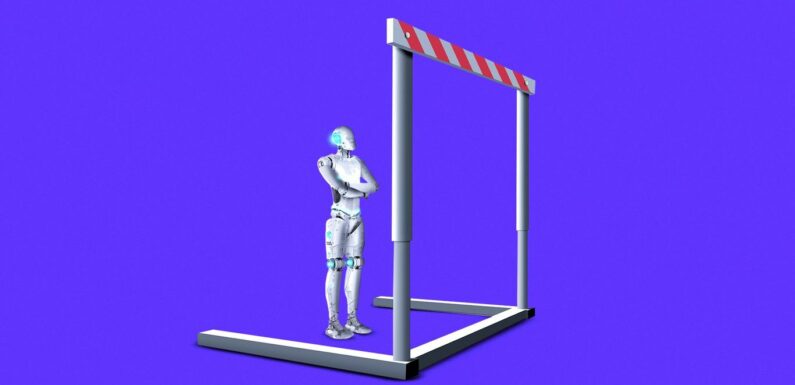
Illustration: Aïda Amer/Axios
OpenAI's early lead in today's generative AI race provides no guarantee of long-term success.
The big picture: "First movers" in previous technology leaps have often stumbled, eventually absorbed by larger rivals.
Remember Netscape? The company, founded in 1994, brought web browsers out of the lab and to the broad public.
- Its initial stock offering in 1995 kicked off the dot-com era.
- But in a few years Microsoft essentially crushed it — with its own mistakes along the way playing their part.
Today there are few traces of Netscape left on the tech landscape.
- Its technical legacy lives on in the non-profit Firefox browser. And co-founder Marc Andreessen would later became Silicon Valley's best-knownventure capitalist.
- But Netscape's corporate DNA disappeared ages ago in a sequence of mergers."First movers" in social networking like Friendster and MySpace have similarly vanished.
OpenAI is riding high right now. Like Netscape in the '90s, it carries the banner not just of a hot product — its ChatGPT bot — but also of what many in the industry see as a tectonic platform shift.
Yes, but: OpenAI's path forward is strewn with uncertainty and obstacles.
The biggest is its dependence on tons of cloud-computing resources controlled largely by three companies — Amazon, Microsoft and Google.
- Large language models like ChatGPT, and other generative AI tools like OpenAI's Dall-E image creator, require swarms of expensive processors that cost a fortune to use.
- When OpenAI's leaders saw this need in 2019 they revised the company's structure to attract investors with a for-profit subsidiary.
OpenAI also entered a close alliance with Microsoft with an initial $1 billion investment that got deepened by a reported additional $10 billion earlier this year.
- Microsoft has since backed the development of ChatGPT's underlying models, GPT-3.5 and GPT-4, and begun to integrate OpenAI's tech with its Bing search engine, Office suite tools and other products.
- Industry insiders believe the great majority of this investment takes the simple form of cloud-computing credits. OpenAI gets to keep building bigger, hopefully better large language models using Microsoft's CPUs, and Microsoft gets a big piece of OpenAI.
Why it matters: This relationship makes it unlikely that Microsoft would plot to cut off the "air supply" of OpenAI the way it throttled Netscape in the '90s. But that's only because OpenAI is effectively acting as an arm of Microsoft.
Our thought bubble: Generative AI is already a battle among superpowers — primarily Microsoft and Google, with Meta, Amazon and Apple likely gearing up their own plans.
- The fight's outcome will shape who wields power in the next phase of the digital age. But don't assume it will anoint a startup David capable of tackling tech's multiple Goliaths.
Source: Read Full Article
